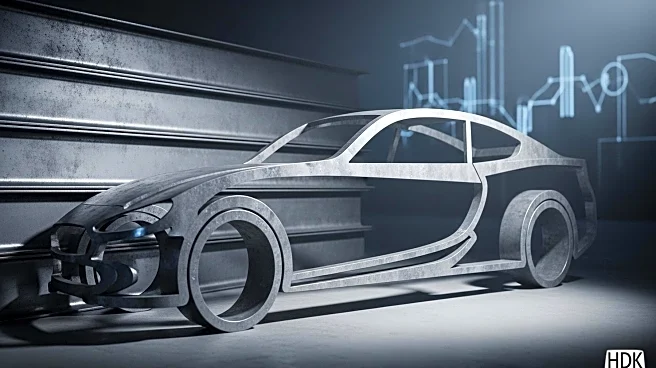What's Happening?
The European Union has announced plans to increase steel tariffs and reduce import quotas, aiming to protect the region's steel industry. The proposal includes limiting tariff-free import volumes to 18.3 million tons annually, a 47% reduction from 2024 quotas, and doubling tariffs to 50% on excess imports. This move has sparked concern within the European automotive sector, as reflected by a 2.1% drop in the Stoxx Automobiles and Parts index. The European Automobile Manufacturers' Association (ACEA) has expressed worries about the inflationary impact on market prices and the increased costs for automakers.
Why It's Important?
The EU's decision to adjust steel tariffs has significant implications for the automotive industry, which relies heavily on steel. The increased costs could lead to higher vehicle prices, affecting consumer demand and potentially slowing down the industry's growth. The move also highlights the tension between protecting domestic industries and maintaining competitive market conditions. Automakers may need to reassess their supply chains and cost structures to mitigate the impact of these tariffs, which could lead to broader economic repercussions across the region.
What's Next?
The automotive industry is likely to engage in discussions with the EU to seek a more balanced approach to steel tariffs. Companies may explore alternative sourcing strategies or cost-cutting measures to offset the increased expenses. The situation could also prompt further lobbying efforts by industry groups to influence future policy decisions. Monitoring the response from both the EU and the automotive sector will be crucial in understanding the long-term effects on the industry and regional economies.










